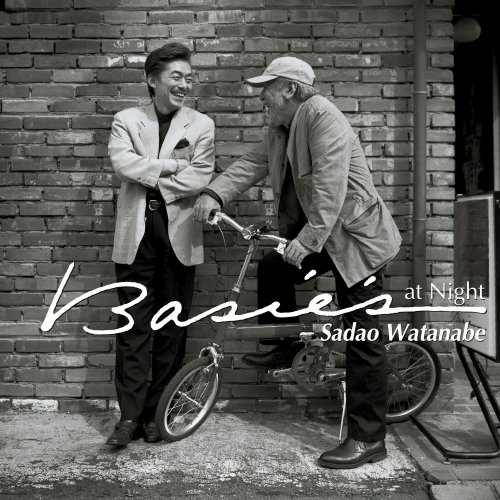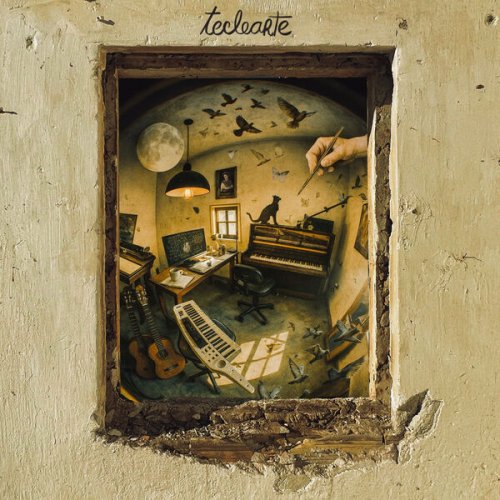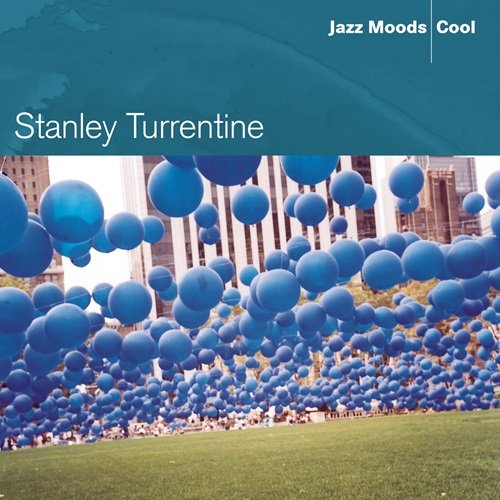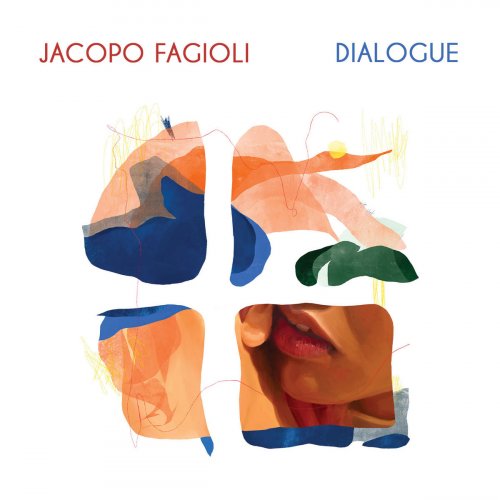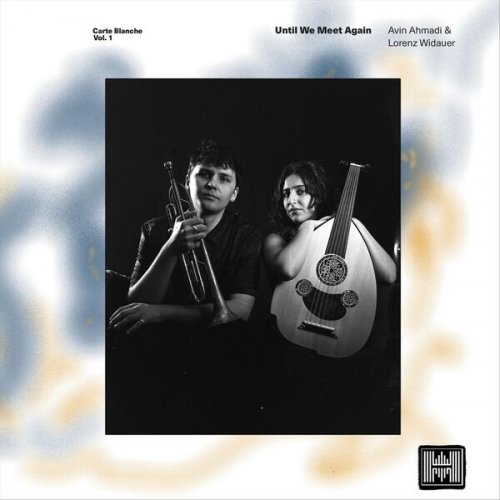Baiba Skride, Harriet Krijgh, Elsbeth Moser. NDR Radiophilharmonie & Andrew Manze - Sofia Gubaidulina: Triple Concerto for Violin, Cello and Bayan, Rejoice! Sonata for Violin and Cello (2024) [Hi-Res]
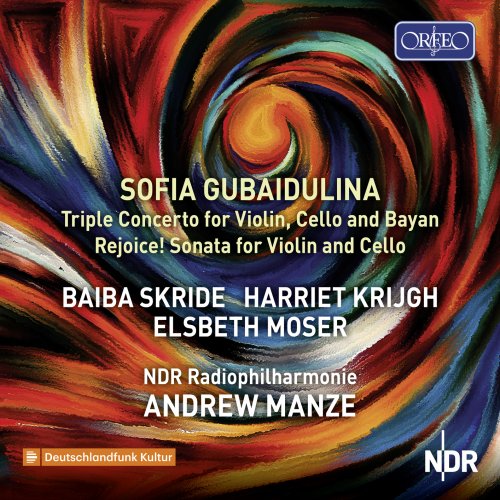
Artist: Baiba Skride, Harriet Krijgh, Elsbeth Moser. NDR Radiophilharmonie, Andrew Manze
Title: Sofia Gubaidulina: Triple Concerto for Violin, Cello and Bayan, Rejoice! Sonata for Violin and Cello
Year Of Release: 2024
Label: Orfeo
Genre: Classical
Quality: FLAC (tracks) / 24bit-48kHz FLAC (tracks+booklet)
Total Time: 01:01:09
Total Size: 259 / 608 MB
WebSite: Album Preview
Tracklist:Title: Sofia Gubaidulina: Triple Concerto for Violin, Cello and Bayan, Rejoice! Sonata for Violin and Cello
Year Of Release: 2024
Label: Orfeo
Genre: Classical
Quality: FLAC (tracks) / 24bit-48kHz FLAC (tracks+booklet)
Total Time: 01:01:09
Total Size: 259 / 608 MB
WebSite: Album Preview
1. Gubaidulina: Triple Concerto for Violin, Cello and Bayan (29:45)
2. Gubaidulina: Rejoice!: I. your joy no one will take away from you (3:25)
3. Gubaidulina: Rejoice!: II. rejoice with joy (4:33)
4. Gubaidulina: Rejoice!: III. rejoice rabbi (11:17)
5. Gubaidulina: Rejoice!: IV. and he returned to his own abode (6:49)
6. Gubaidulina: Rejoice!: V. heed thyself (5:23)
One special aspect of Sofia Gubaidulina’s music is that at the end of the 1970s she discovered the sound characteristics and expressive possibilities of the bayan, a button accordion that had previously been popular only as a folk music instrument in Russia; she then established it as an instrument of contemporary music through numerous inspired compositions. She was supported and accompanied in this endeavour by bayan performers such as Friedrich Lips in Moscow and the Swiss musician Elsbeth Moser, who taught in Hanover. The creation of the Triple Concerto for violin, cello and bayan can be traced back to a suggestion by Elsbeth Moser. For the five movements of the sonata Rejoice! for violin and cello (1981), Gubaidulina chose various quotations from the writings of the Ukrainian ‘travelling philosopher’ Grigori Skoworoda (1722–1794), who called for poverty and self-deepening as a prerequisite for finding God. The composer explained: “The theme of my work is the metaphorical representation of the transition to another reality, expressed through the juxtaposition of normal sound and harmonics.” Due to its clear religious references, it was not possible to premiere the work until 1988, in Finland.
![Paul Mauriat - L'avventura (1972) [Hi-Res] Paul Mauriat - L'avventura (1972) [Hi-Res]](https://img.israbox.com/img/2025-12/19/q8l5an3pdrx7j3uta0q4cr2qi.jpg)
![RAS - Rød i Blå (2025) [Hi-Res] RAS - Rød i Blå (2025) [Hi-Res]](https://www.dibpic.com/uploads/posts/2025-12/1765847447_s09xuo23tcu1a_600.jpg)


